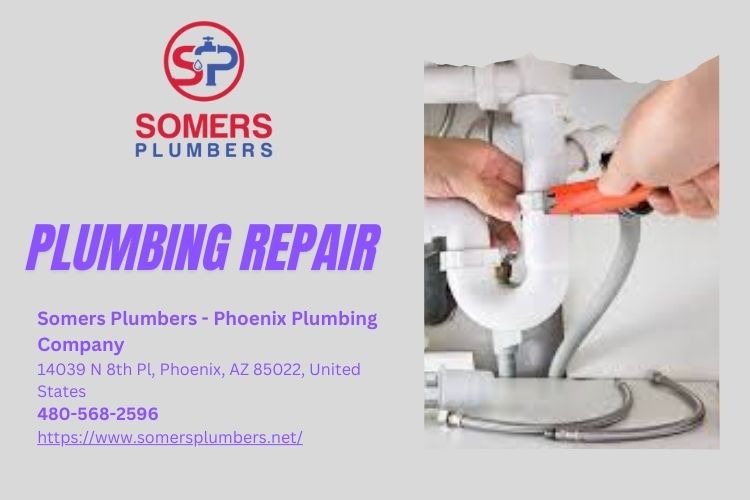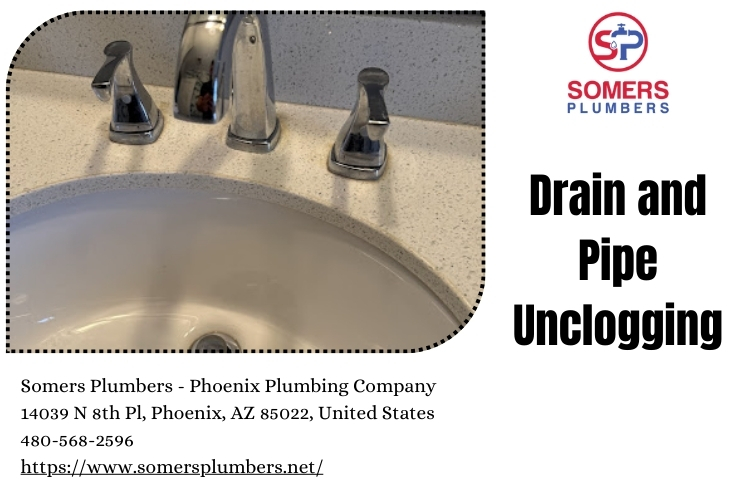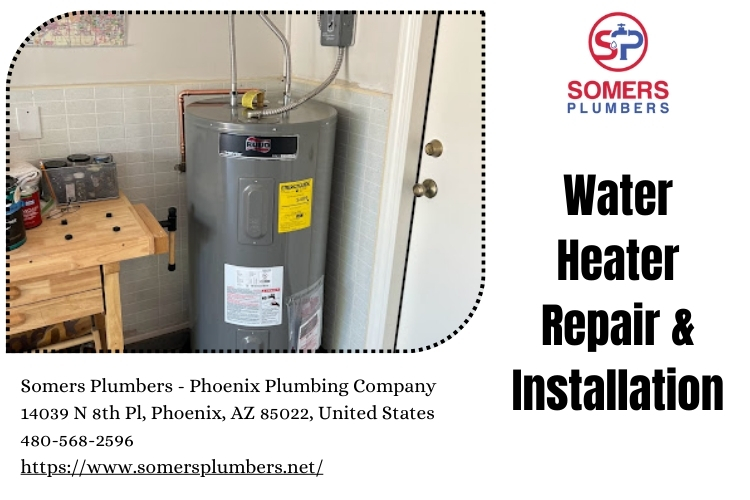Introduction
Water heaters are essential components of modern-day living, providing hot water for everything from showers to dishwashing. However, like any appliance, water heaters have a finite lifespan that can be extended with proper care and maintenance. This article aims to provide you with expert advice on how to extend the life of your water heater, leveraging insights from Somers Plumbers, a trusted plumbing company in Phoenix. Whether you're looking for tips on regular maintenance or wondering when it's time for water heater repair or replacement, we've got you covered.

How to Extend the Life of Your Water Heater: Expert Advice from Somers Plumbers
Understanding Your Water Heater
Types of Water Heaters
Water heaters come in various types, each with its own set of features and benefits. The most common types include:
Tankless Water Heaters: These heat water on demand and are known for their energy efficiency. Storage Tank Water Heaters: These traditional units store hot water in a tank and are widely used for residential purposes. Heat Pump Water Heaters: They use electricity to move heat rather than generating it directly. Solar Water Heaters: These harness solar energy to heat water and can significantly reduce utility bills.By understanding the type of water heater you have, you'll be better equipped to implement maintenance practices suited to its specific needs.
Common Issues with Water Heaters
Water heaters can experience a variety of issues over time, including:
- Sediment buildup Rusty or discolored water Insufficient hot water supply Strange noises during operation
Recognizing these problems early can save you money and hassle down the road.
Regular Maintenance Practices
Flushing the Tank
One of the most crucial steps in maintaining your water heater is flushing the tank at least once a year. This process helps remove sediment buildup that can lead to corrosion and inefficiency.
Turn Off Power Supply: For electric heaters, switch off the circuit breaker; for gas models, turn off the gas supply. Connect a Hose: Attach a garden hose to the drain valve at the bottom of your tank. Drain Water: Open the valve and let it run until clear water flows out. Refill Tank: Close the valve and refill your tank before turning power back on.Insulating Your Water Heater
Insulation can help maintain temperature and reduce energy consumption:
- Use an insulation blanket designed specifically for your model. Don’t forget pipes – insulating them can prevent heat loss as well.
This simple step can improve efficiency by up to 9%, saving you money on utility bills!
Temperature Settings
Optimal Temperature Settings
Setting your water heater's thermostat correctly can extend its life while ensuring safety:
- Recommended settings range between 120°F (49°C) and 140°F (60°C). Lower settings reduce energy costs but may increase bacterial growth; higher settings may scald users.
A setting of 130°F strikes a balance between efficiency and safety.
Professional Inspections
Schedule Regular Check-Ups
Having professional plumbers like Somers Plumbers perform regular inspections can identify potential issues before they become serious problems.
Inspecting connections for leaks Checking pressure relief valves Evaluating overall performanceRegular checks ensure long-term reliability.
When to Repair vs Replace
Signs You Need Professional Help
Knowing when it's time for repair or replacement is key:
- Age: If your unit is over 10 years old, consider replacement. Frequent Repairs: If repairs are becoming routine, it’s cost-effective to invest in a new unit.
Consulting local experts like Somers Plumbers will provide clarity on this decision-making process.
Water Heater Repair Options
Common Repair Services Offered by Somers Plumbers
Somers Plumbers specializes in various water heater repair services tailored to meet individual needs:
Leak repairs Thermostat replacements Element replacement Drain valve repairsWhen searching for "water heater repair near me," look no further than Somers Plumbers!
DIY Repair Tips
For minor issues, some homeowners may attempt DIY repairs:
- Turn off power supply before attempting any fixes. Always consult manuals or online resources specific to your model.
However, never hesitate to call professionals if you’re unsure!
Water Heater Installation Guidelines
Choosing the Right Unit
When installing a new unit, consider factors like size, fuel type (gas vs electric), and efficiency ratings (Energy Star).
Steps for Installation
Choose an appropriate location – ideally near existing plumbing lines. Obtain necessary permits if required by local regulations. Follow manufacturer instructions meticulously during installation.Hiring experienced professionals ensures quality work that adheres to safety standards!
Post-Installation Considerations
After installation, monitor performance closely:
- Ensure no leaks are present. Check temperature settings regularly.
Routine follow-ups with local plumbers will keep everything running smoothly!
Water Heater Replacement Insights
When Is It Time for Replacement?
Several indicators suggest it might be time for a new unit:

Consulting experts can guide this important decision-making process effectively!
Choosing Energy-Efficient Models
If replacement is necessary:
Look for models with high-efficiency ratings (Energy Star). Consider tankless options which offer longer lifespans and lower operational costs compared to traditional tanks.Investing in an efficient model pays off in reduced monthly utility bills over time!
FAQs About Extending Your Water Heater's Life
FAQ 1: How often should I flush my water heater?
Answer: It's recommended that you flush your water heater at least once every year to remove sediment buildup that could affect performance.
FAQ 2: What temperature should I set my water heater?
Answer: The ideal temperature setting is around 130°F (54°C) which balances safety against scalding risks while optimizing energy usage.

FAQ 3: How do I know if my tank is leaking?
Answer: Signs include puddles around the base or rust spots on the exterior of the tank; both indicate potential leaks requiring immediate attention Emergency plumbers near me from professionals like Somers Plumbers.
FAQ 4: Can I replace my own thermostat?
Answer: Yes, but ensure that power is turned off before attempting any DIY repairs; consulting professional plumbers is always safer if you're unsure about anything!
FAQ 5: How long does a typical water heater last?
Answer: Most conventional storage tank models last between 8–12 years; however, tankless systems can last up to 20 years with proper care!
FAQ 6: What are signs I need professional help?
Answer: Signs include inconsistent temperatures, strange noises coming from your unit, or visible rust or corrosion—act fast before small problems escalate into larger ones!
Conclusion
Extending the life of your water heater requires diligence and proactive measures—from regular maintenance tasks like flushing tanks and checking temperatures to knowing when it’s time for professional intervention or complete replacement options offered by trusted providers such as Somers Plumbers - Phoenix Plumbing Company! By following these guidelines outlined here today along with seeking assistance whenever necessary—your household's reliable access hot-water will continue uninterrupted while saving money long-term too!
Contact Us
Somers Plumbers - Phoenix Plumbing Company
Address: 14039 N 8th Pl, Phoenix, AZ 85022, United States
Phone: (480) 568-2596
Remember! Investing effort into maintaining your current system not only prolongs its lifespan but ultimately provides peace-of-mind knowing you've taken steps towards sustainable living practices—so roll up those sleeves because there's nothing quite like having hot showers waiting after long days ahead!